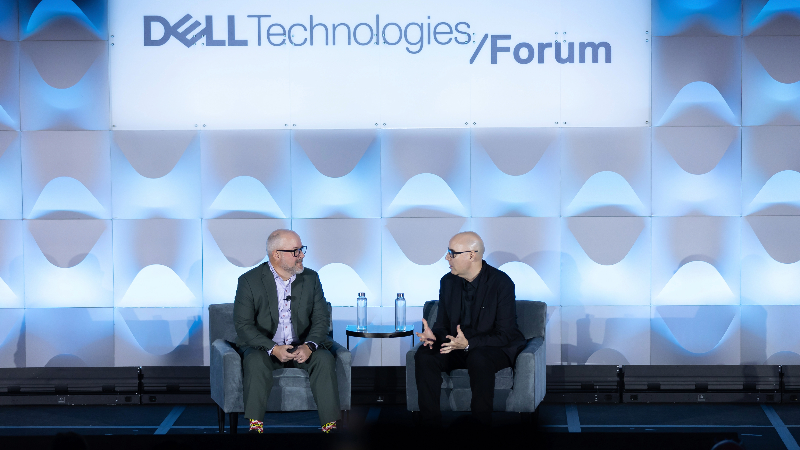
Technology and innovation expert Mitch Joel said at today’s Dell Technologies Forum event that the biggest challenge for organizations that have begun leveraging artificial intelligence involves evaluating the differences between traditional AI technologies and newer generative AI tools, and then considering the best uses for both.
“One of the challenges we have, especially when we’re thinking about putting this into organizations, is understanding where we’re going to delineate between [AI and generative AI] and how we’re going to use them most effectively, because I think they are somewhat different even though people think they’re the same,” Joel said during Dell Technologies Forum on Oct. 24 in Washington, D.C.
Joel explained what he believes the main difference between the two technologies are: “One is really building an infrastructure and a future of how we are embedded with technology. And generative AI is more about how we will work day-in and day-out.”
“I think that generative AI part is the real challenge for most businesses. And I think especially if you’re working in government, it’s a higher hurdle,” Joel said.
The tech guru – whose books and keynotes revolve around empowering businesses to move forward digitally – questioned whether or not customers in the future will perceive AI in a visible way, or if it will be more like electricity.
“The real work of AI is going to be air; it’s going to be radio frequency; it’s going to be just everywhere embedded by everything and you wouldn’t know,” Joel forecasted.
Dell’s Senior Vice President of Corporate Strategy, Matt Baker – who joined the fireside chat with Joel during the Dell Technologies Forum – agreed with the idea that AI will be embedded into everything we do in the future but said that calls for a larger conversation about transparency.
“[AI] is going to be everywhere, but if done right, people are aware that they’re interacting with a nonhuman entity,” Baker said. “That transparency is actually really important … [AI is] not going to be necessarily this visible thing … it will permeate into every business process every interaction.”
Baker warned that now is “go time” for every business. If you do not get AI stood up and running fast, he said, you’re going to quickly lose control.
“And the worst thing you can do is clamp down completely,” Baker said, because “you’re basically stifling innovation.” The official explained that is the constant balance that Dell is trying to strike at its business: innovation and safety.
Baker asked, “How do you get the excitement and harness the excitement but at the same time protect the estate?”
Additionally, he warned that the “real danger” of implementing generative AI is using the tool in existing processes.
“It’s such a missed opportunity,” Baker said. “While it’s going to be air, just adding it to our way of life and our business processes as they are, I think could be a mistake – not always a mistake – but could be a mistake in that it provides you an opportunity to truly revolutionize the way you’re operating.”
Joel acknowledged that the use of generative AI is even more complex within government, and that speed remains the biggest challenge for the Federal government in AI deployment.
He touted that the private sector, including himself, is using generative AI as a “copilot” which yields greater perspective. Speed becomes “problematic,” he said, if you can’t get your organization up and running with AI quick enough.
A big part of the conversation around AI includes the workforce. Baker said that Dell doesn’t believe AI is going to displace someone from their job, but that someone else using AI could best you at your job.
Joel agreed with Baker, noting that he’s a “tech optimist with a dash of cynicism.” He left the audience with two thought pieces on AI – one of caution and one of opportunity.
“You have to reflect on your day-to-day work. If your day-to-day work is still fundamentally repetitive in nature, whatever it might be, understand that AI is exceptionally good at replicating that,” Joel cautioned.
For the opportunity piece, Joel said, “Emergent thinking will be the best way to complement the work you’re doing … I was using [generative AI] as a way to see could I be better at the work that I’m bringing with it? And the only success models that I’ve really seen at your level is those who can apply your work that you’re doing with this idea of emergent thinking.”
